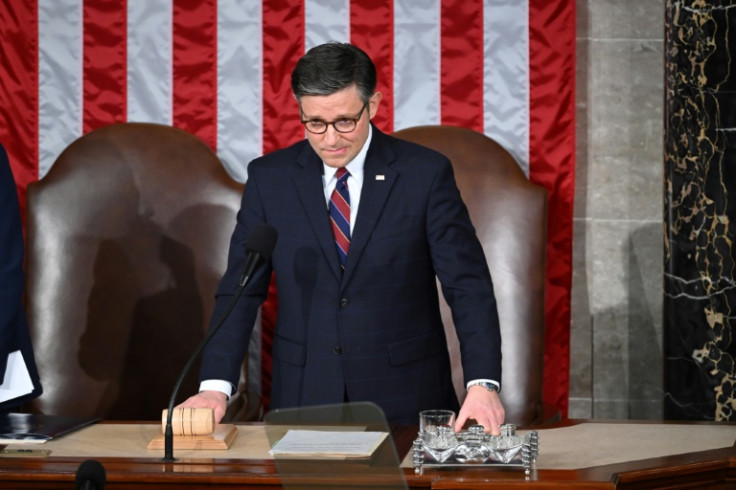
The US House of Representatives defied internal discord to approve more than $61 billion in military aid for Ukraine, alongside funding for other key allies such as Israel and Taiwan. The vote, which commenced ahead of schedule, saw 210 Democrats and 101 Republicans supporting the measure, while 112 Republicans dissented.
The passage of the bill comes after months of deadlock and intense debate within the GOP, with Republican Speaker Mike Johnson facing resistance from his own party, particularly from far-right members opposed to increased spending on Ukraine's defense. Johnson's strategic maneuvering, including breaking up the package into separate bills, paved the way for bipartisan support on critical issues.
Former Democratic Speaker Nancy Pelosi delivered a poignant appeal before the vote, urging colleagues to prioritize democracy and decency over autocracy and evil. Ukrainian President Volodymyr Zelenskiy, who had warned of dire consequences without US assistance, expressed gratitude to both parties and Speaker Johnson for the decision, emphasizing the importance of American support in maintaining global peace and security.
The comprehensive package, totaling close to $95 billion, encompasses funding for Ukraine's military replenishment, assistance for Israel's defense, support for Indo-Pacific allies like Taiwan, and humanitarian aid for conflict zones. The bills also include provisions to address border security concerns and tackle geopolitical challenges posed by China and Iran.
President Joe Biden hailed the House's bipartisan effort, emphasizing the urgency of bolstering national security amidst escalating threats faced by allies. With the bills now set to move to the Senate, where they will be consolidated into a single package, Biden urged swift approval to provide essential aid to Ukraine and other allies facing imminent threats.
While the House's decisive action marks a significant step in addressing global security challenges, internal strife within the GOP underscores broader divisions on foreign policy and party leadership. Johnson's reliance on Democratic support has sparked criticism from hard-right Republicans, highlighting ongoing tensions within the party.







